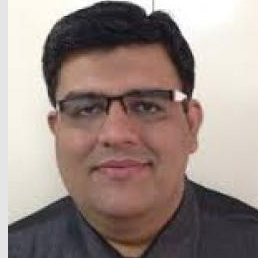 100%
100%
DR AKASH SHUKLA
Gastroenterologist
-
Friday 9:00 AM - 1:00 PM
(See all timing)Monday 9:00 AM - 1:00 PM,
Tuesday 9:00 AM - 1:00 PM,
Wednesday 9:00 AM - 1:00 PM,
Thursday 9:00 AM - 1:00 PM,
Friday 9:00 AM - 1:00 PM,
Saturday 9:00 AM - 1:00 PM
Introduction
Dr. Akash Shukla is the best Gastroenterologist in Mumbai and is currently associated with HN Reliance Hospital and Wockhardt South Mumbai-New Age.
Hospital Associations
HN Reliance Hospital, Wockhardt South Mumbai-New Age.
Services/Interest
- Bladder Cancer Surgery
- Hemorrhoids Treatment
- Irritable Bowel Syndrome ( IBS ) Treatment
- Esophageal Dilation
- Bronchoscopy
- Upper Endoscopy/Gastroscopy
- Colonoscopy
- Endoscopic Retrograde Cholangiopancreatography (ERCP)
Experience
Dr. Akash Shukla is one of the best Gastroenterologist in Mumbai and has an experience of 12 years. Dr. Akash Shukla is currently the Director of Hepatology at HN Reliance Hospital Mumbai.
Awards and Recognitions
Awards for research 3 times at national conferences.
Education
Dr. Akash Shukla pursued M.B.B.S. from Seth GS college & KEM Hospital, Mumbai. Dr. Akash Shukla completed M.D(Medicine) from TNMC & BYL Nair Hospital, Mumbai. Dr. Akash Shukla has done DM(Gastroenterology) from Seth GS Medical College & KEM Hopital, Mumbai.
I Speak
English, Hindi
Feedback For Dr Akash Shukla
Write FeedbackRumana Shaikh
(08 Apr 2023)Rajesh Lalge
(18 Oct 2022)Vishal Bhoir
(20 Oct 2022)Siddhant Chaurasia
(13 Jul 2022)HN Reliance Hospital Timing
Monday - Friday
9:00 AM - 1:00 PM
Saturday
9:00 AM - 1:00 PM
Who is a gastroenterologist?
Gastroenterologists are the physicians who have extensive training in the diagnosis and treatment of conditions that affect the large intestine, small intestine, stomach, esophagus, and biliary system which is made up of liver, pancreas, gallbladder, bile ducts.
What does a gastroenterologist do?
Gastroenterologist primarily assesses the structure of the digestive tract and are experts in diseases of the digestive tract.
They specialize in the evaluation, diagnosis, and treatment of the following symptoms and conditions: Abdominal pain, bleeding in the digestive tract, colorectal cancer, stomach cancer, pancreatic cancer, liver cancer, constipation and diarrhea, difficulty swallowing, polyps, diverticular disease, Crohn's disease, gallbladder disease, irritable bowel syndrome (IBS), colitis, heartburn, GERD (gastroesophageal reflux disease), hemorrhoids, stomach upset, nausea, vomiting, and ulcers.
When should you see a gastroenterologist?
You should see a gastroenterologist if you're experiencing any of the following symptoms:
- Abdominal pain or bloating
- Bowel movement urges that are hard to control
- Changes in bowel habits
- Dark urine
- Diarrhea
- Esophageal pain
- Excessive gas or belching
- Heartburn (acid reflux)
- Leakage/underwear stains
- Lethargy
- Loss of appetite or weight
- Pale-colored stools
- Rectal bleeding
- Vomiting
What diseases do Gastroenterologists treat?
A gastroenterologist treats any condition affecting the gut, such as:
- Oesophagitis, gastritis, peptic ulcer disease, and duodenal ulceration.
- Inflammatory bowel disease like Crohn’s disease.
- Malignancy (cancer) and benign (non-cancerous) tumors of the gut.
- Hepatitis
- Hiatal hernia
- Irritable bowel syndrome (IBS)
- Liver disease
What procedures do gastroenterologists perform?
Endoscopic ultrasounds to examine the upper and lower tract and other internal organs. Colonoscopies to detect colon cancer. Cholangiopancreatography to identify tumors, gallstones, or scar tissue in the bile duct area. Sigmoidoscopies to evaluate blood loss in the bowel. Liver biopsies to assess fibrosis and inflammation. Capsule endoscopies to examine the small intestine. Double balloon enteroscopy to examine the small intestine.
What happens in your first appointment with a gastroenterologist?
Your gastroenterologist will begin by asking you about the symptoms you have been getting, the duration of the symptoms, any previous tests, and treatments, risk factors, other medical problems, medications, allergies, and social history and will conduct an examination and provide a list of tests.
